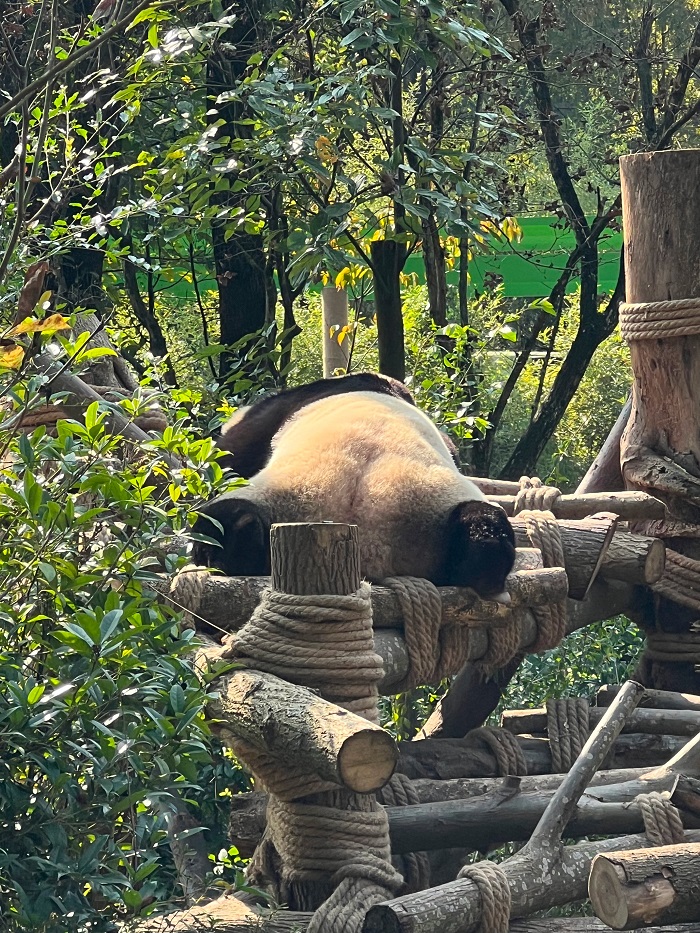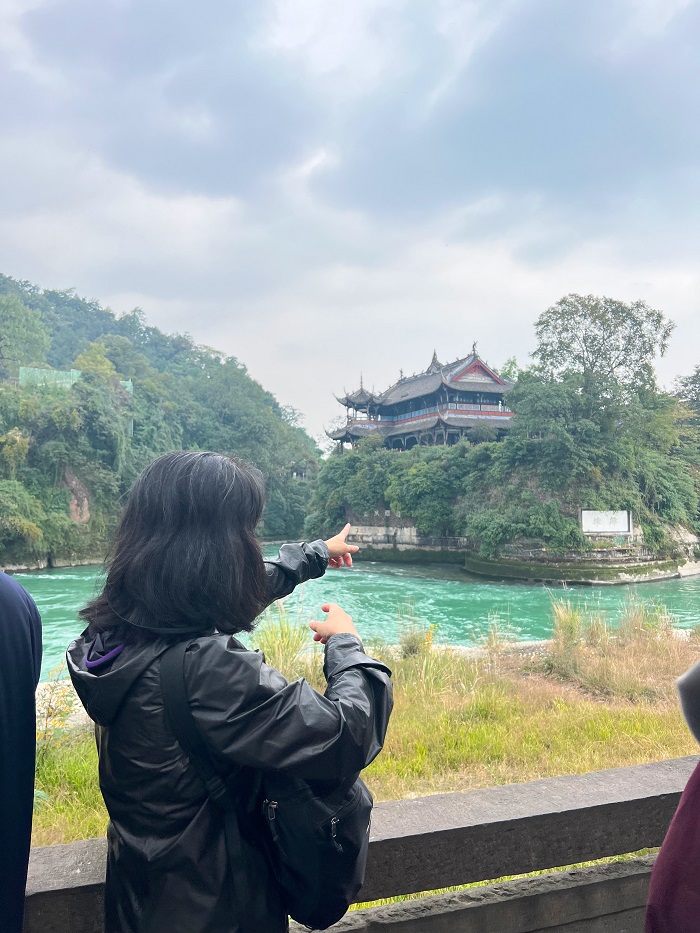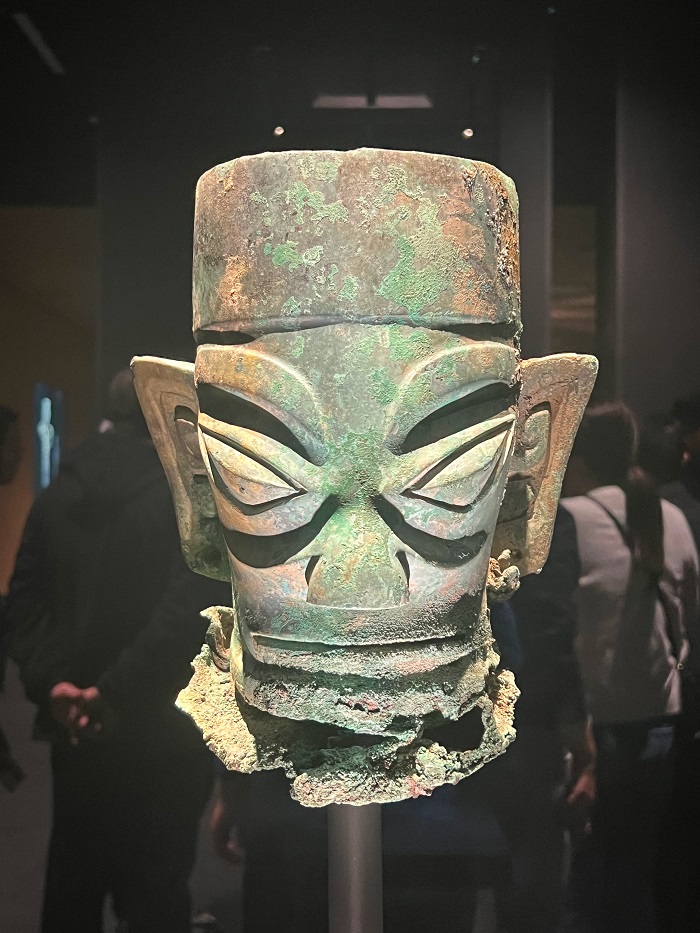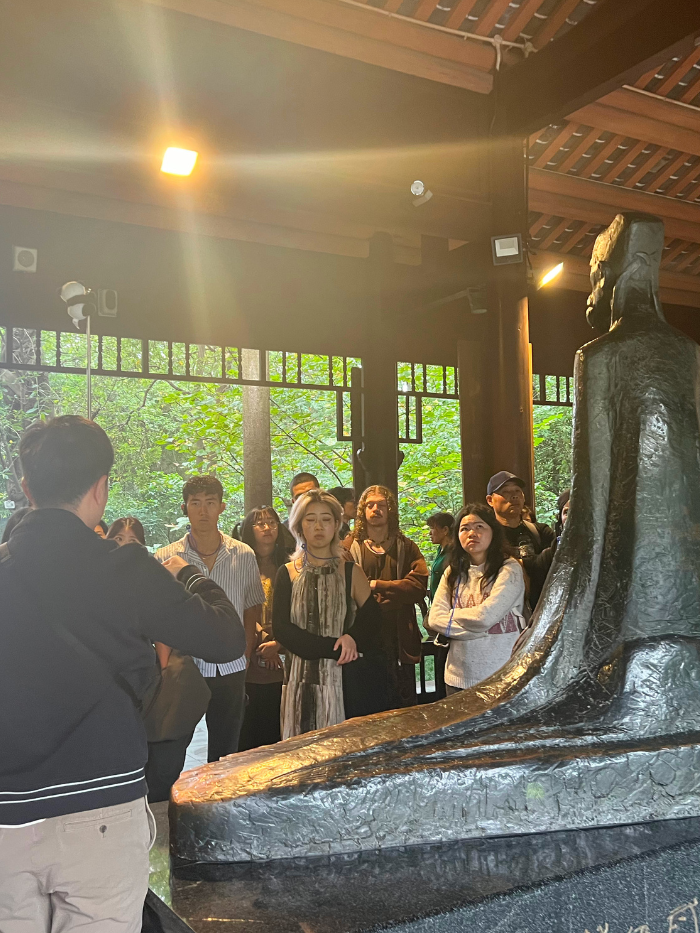Written by Dominic Bellido (Colby College), Student Correspondent for CET Beijing, Fall 2023
Dear Reader,
As I write to you, it is the last day of our trip to Chengdu, the Sichuan city nicknamed “The Land of Abundance.” I compose these thoughts as I stand by a quiet lake in the center of the Southwest Jiaotong University campus. Though it is night, the weather is mild, and on the surface of the water I see the second eye of the moon floating amidst leaves.
If there is anything the CET program has taught me so far, if I am to leave now having learned only a single lesson, then it must be focus. I stand on the edge of the lake and look into the dark water—ahead of me is the bus ride to the airport and the flight back to Beijing, where winter has already begun. Ahead of me is only one month left in China. Only a handful of classes left to practice what I’ve learned.
But I don’t like thinking about the future so much, so I turn from the water and think back to my time in Chengdu. On the first day, we got to sit in a real-working prototype of a Maglev train, a technology that will hopefully be used to continue developing transportation. At night, we got to walk around a night market and take in the street culture—I even got to try a Sichuan delicacy: spicy rabbit head!
On the second day, I got to see real-life pandas without glass or iron bars obstructing my view. While walking around the Panda Research Base Sanctuary and seeing the dense trees of their habitats, I began to hope that in my next lifetime, I could be reborn as a panda and lounge around all day, surrounded by food and human servants. What a life!


After the pandas, we visited the Dujiangyan Irrigation System, an ancient engineering project designed to prevent floods and provide drinking water for most of Chengdu’s residents. They carved out rivers and run-offs to catch the water that comes down from the mountains. I took many photos there, especially of the man-made island between the inner and outer river, which they named the “Fish’s Mouth.” It’s a lucky name.
Suddenly, I can’t quite remember the exact order of events after the second day. It’s funny—although I try to record everything, it’s always the most recent events of my life that I have trouble recalling. The past seems to get clearer only as I move further away—or is that just an assumption I make? How do I know which details I keep and I forget?
How will I remember this trip to Chengdu once I am back in Beijing or in the States? Will I remember nothing about the Sanxingdui museum except for the shapes of certain clouds and wave patterns etched into the bronze statues? Will I remember nothing about Du Fu’s Thatched Cottage, save for the herds of visiting middle schoolers reciting Tang poems for us in high-pitch unison?


What about this entire semester? How long will I remember the little details, the meals shared, the subway rides? What to leave and what to take…in reality, I’m not sure I have much control over what my brain decides to shelve in the storehouse of memory. The friends I’ve made here and the natural beauty I’ve seen in China all leave impressions in my subconscious, with or without my permission. Like a flash of lightning that burns itself across the walls of heaven, then fades.
The only thing that I can control is what I do in the infinitely narrow space of this moment. Here—what word I choose to give to you, where to lead your eyes as I try to open my imagination to you. To myself. I can only do my best to use this page and try to hold onto the full picture, past, present, and future, all in one. I think this trip has taught me that focus is like that.
No—focus is more like drawing a mental circle around the picture you wish to save. Yes—it’s like drawing a circle over and over again, circling around what it is you want to see, what must be remembered but cannot be touched.
As I write to you, it is the last day of our trip to Chengdu, and I stand by a quiet lake…